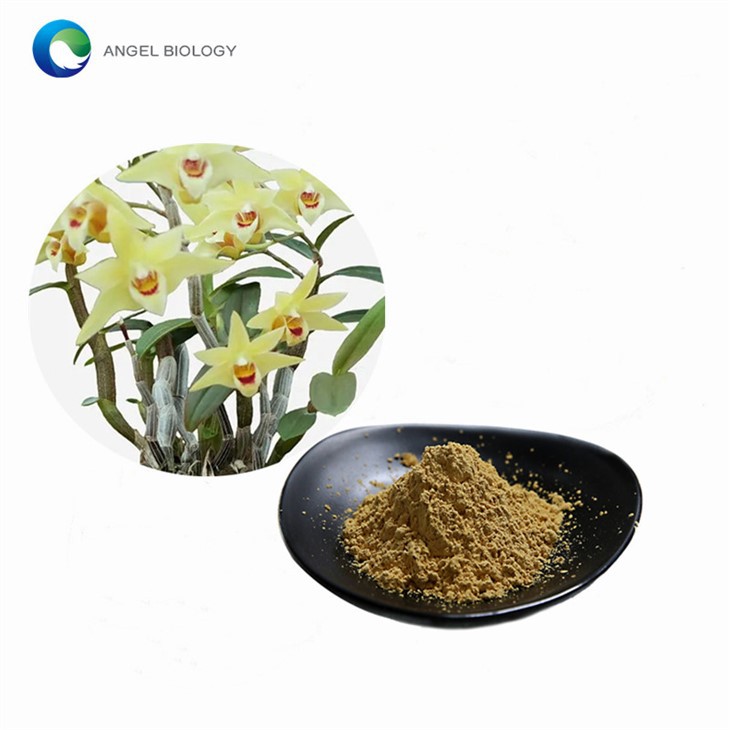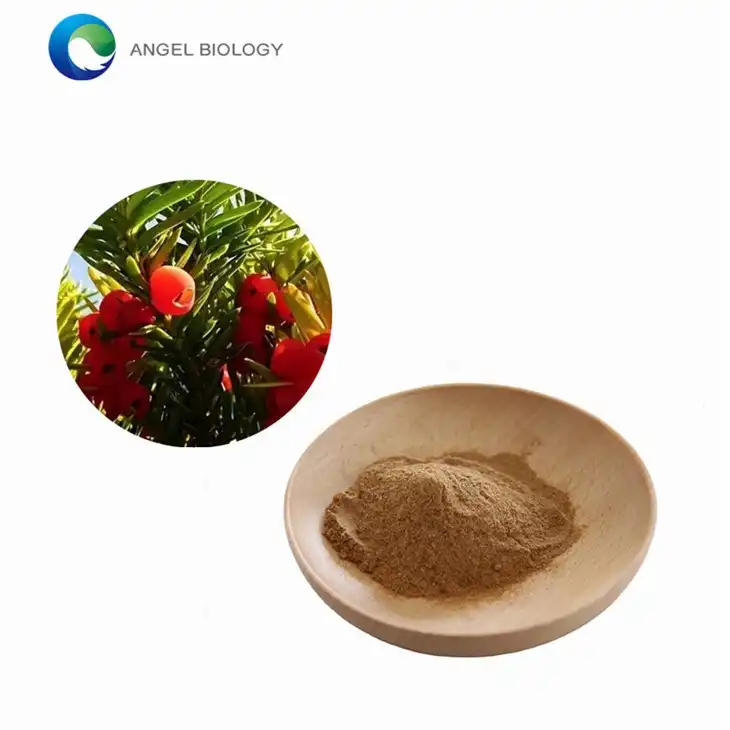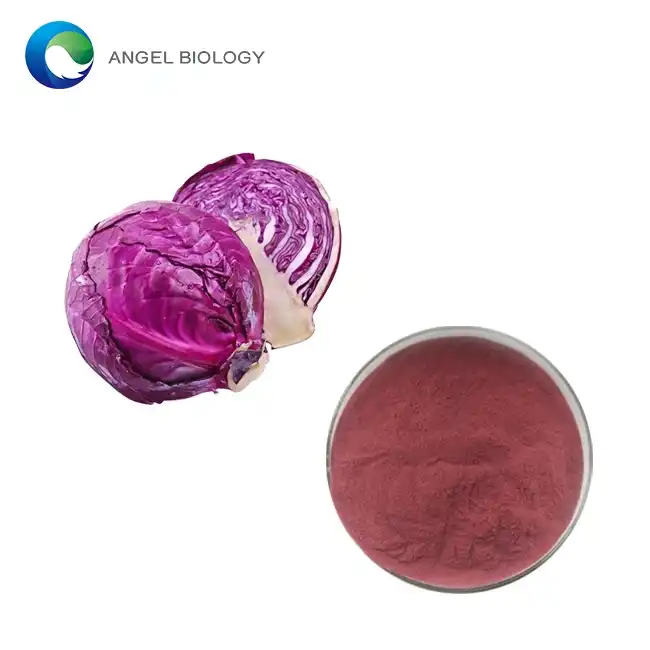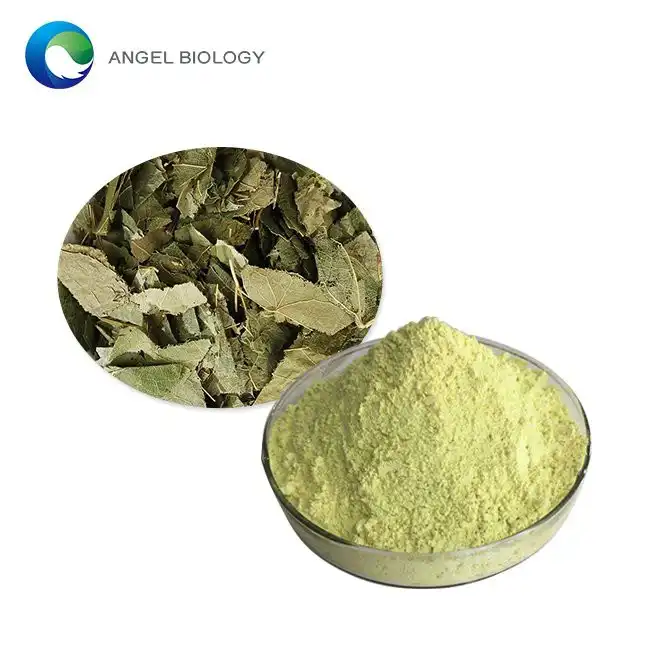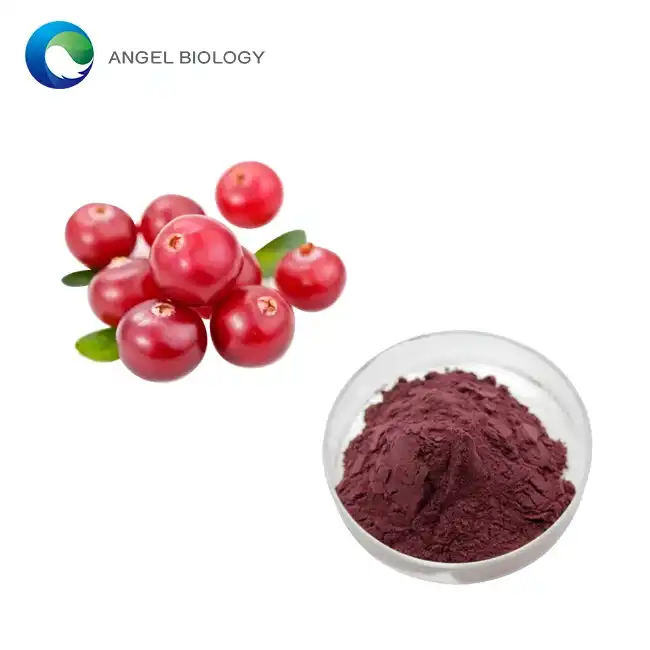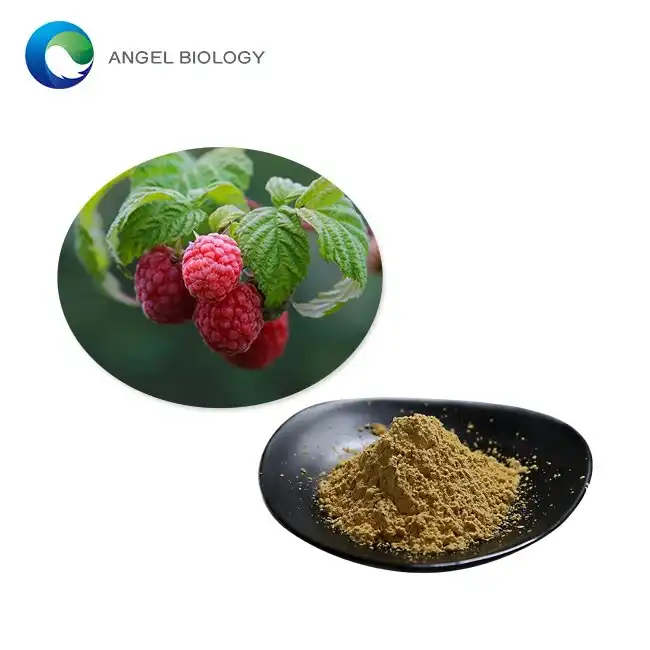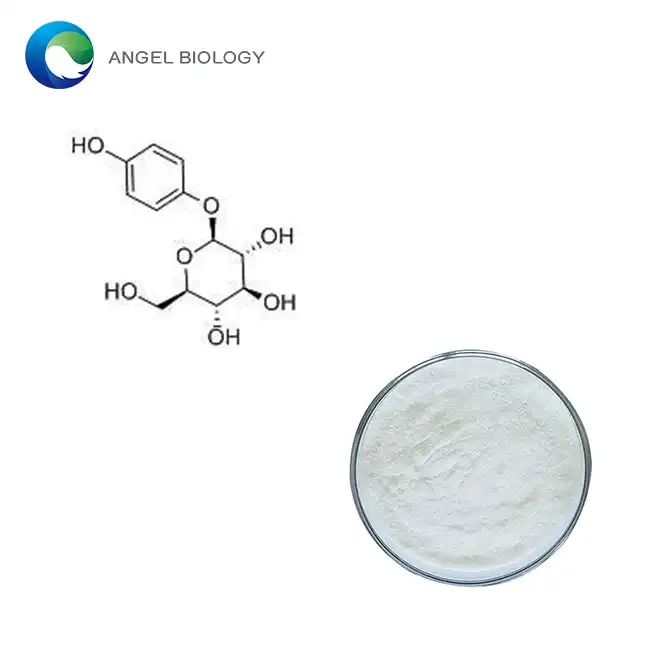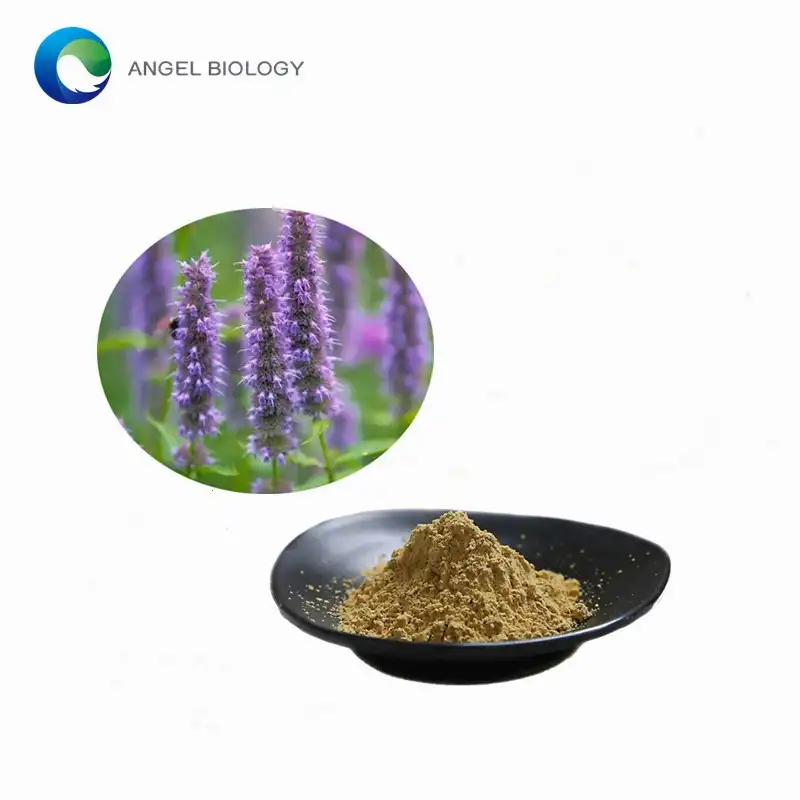What bioactivities (hepatoprotective, anticancer) does this powder have?
Silybum marianum, commonly known as milk thistle, has been utilized for centuries in traditional medicine. Today, its extract powder is gaining significant attention in the scientific community for its remarkable bioactivities. This article delves into the hepatoprotective and anticancer properties of Silybum marianum extract powder, exploring its potential applications in modern healthcare.
What are the key bioactivities associated with Silybum marianum extract powder?
Silybum marianum extract powder is renowned for its diverse range of bioactivities, with hepatoprotection and anticancer effects being among the most prominent. The powder's primary active compound, silymarin, is a complex mixture of flavonolignans that includes silybin, silydianin, and silychristin.
Hepatoprotection is perhaps the most well-known benefit of Silybum marianum extract powder. It has demonstrated the ability to shield liver cells from various toxins and promote liver regeneration. This makes it a valuable asset in treating liver disorders and supporting overall liver health.
The anticancer properties of Silybum marianum extract powder have also garnered considerable interest. Research suggests that it may inhibit the growth and proliferation of cancer cells, potentially offering a complementary approach to conventional cancer treatments.
Beyond these primary bioactivities, Silybum marianum extract powder exhibits antioxidant and anti-inflammatory properties. These characteristics contribute to its potential in managing various health conditions, from cardiovascular diseases to neurological disorders.
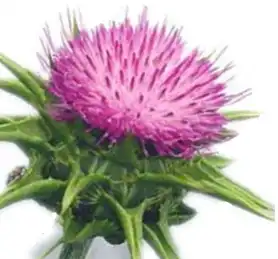
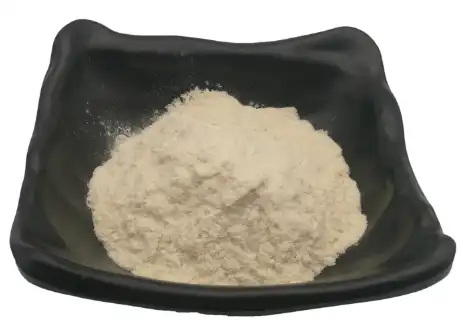
Hepatoprotective mechanisms and liver cell regeneration
The hepatoprotective effects of Silybum marianum extract powder are multifaceted, involving several mechanisms that work synergistically to support liver health:
- Antioxidant action: Silymarin, the active compound in the extract, acts as a powerful antioxidant. It neutralizes free radicals that can damage liver cells, thus preventing oxidative stress-induced liver injury.
- Membrane stabilization: The extract helps stabilize cell membranes in the liver, making them more resistant to damage from toxins and other harmful substances.
- Protein synthesis stimulation: Silymarin has been shown to stimulate the synthesis of ribosomal RNA, which in turn promotes the production of new liver cells. This process is crucial for liver regeneration and repair.
- Toxin blockade: The extract can block the uptake of certain toxins by liver cells, providing an additional layer of protection against liver damage.
These mechanisms collectively contribute to the liver's ability to regenerate and repair itself. In cases of liver disease or damage, Silybum marianum extract powder may help accelerate the healing process and restore liver function.
Moreover, the hepatoprotective effects of the extract extend beyond acute liver injuries. Studies suggest that regular consumption of Silybum marianum extract powder may help prevent chronic liver diseases, including cirrhosis and fatty liver disease.
Antioxidant and anti-inflammatory properties in disease management
The antioxidant and anti-inflammatory properties of Silybum marianum extract powder play a crucial role in its potential for disease management beyond liver health:
Antioxidant effects: The flavonolignans in Silybum marianum extract powder are potent antioxidants. They scavenge free radicals throughout the body, potentially reducing oxidative stress-related damage in various organs and tissues. This broad-spectrum antioxidant activity may contribute to the extract's potential in preventing and managing conditions such as cardiovascular diseases, neurodegenerative disorders, and certain types of cancer.
Anti-inflammatory action: Chronic inflammation is a common factor in many diseases, including arthritis, diabetes, and cardiovascular disorders. Silybum marianum extract powder has demonstrated significant anti-inflammatory properties. It can inhibit the production of pro-inflammatory cytokines and modulate inflammatory pathways, potentially offering relief in inflammatory conditions.
Cardiovascular health: The antioxidant and anti-inflammatory properties of the extract may benefit cardiovascular health. Some studies suggest that it could help reduce cholesterol levels and improve overall heart function.
Neuroprotection: Emerging research indicates that Silybum marianum extract powder may have neuroprotective effects. Its antioxidant properties could potentially slow down age-related cognitive decline and offer some protection against neurodegenerative diseases.
Skin health: The antioxidant properties of the extract may also benefit skin health. Some studies suggest that topical application of Silybum marianum extract could protect against UV-induced skin damage and aging.
While these properties show promise, it's important to note that more research is needed to fully understand the extent of Silybum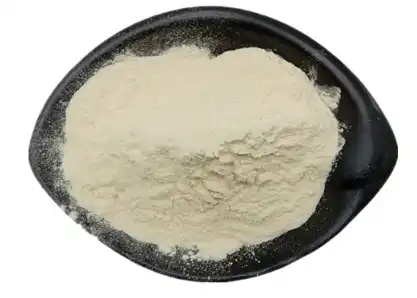 marianum extract powder's effects in managing various diseases. As with any supplement, it should be used under the guidance of a healthcare professional.
marianum extract powder's effects in managing various diseases. As with any supplement, it should be used under the guidance of a healthcare professional.
The bioactivities of Silybum marianum extract powder extend far beyond its well-known hepatoprotective effects. Its potential in cancer prevention and treatment, coupled with its broad-spectrum antioxidant and anti-inflammatory properties, makes it a fascinating subject for ongoing research in natural medicine and nutraceuticals.
As we continue to uncover the full potential of this remarkable plant extract, it's clear that Silybum marianum extract powder holds significant promise in supporting overall health and well-being. From liver support to potential cancer-fighting properties, this natural compound offers a multitude of benefits that align with the growing interest in plant-based remedies and preventive healthcare approaches.
Conclusion
The bioactivities of Silybum marianum extract powder, particularly its hepatoprotective and anticancer properties, underscore its potential as a valuable natural supplement. Its ability to support liver health, combat oxidative stress, and potentially inhibit cancer cell growth makes it a subject of great interest in both traditional and modern medicine.
As research continues to evolve, we may discover even more applications for this versatile extract. However, it's crucial to approach its use with informed caution. While the potential benefits are significant, more clinical studies are needed to fully understand its efficacy and optimal usage in various health conditions.
For those interested in exploring the benefits of Silybum marianum extract powder, it's essential to consult with healthcare professionals and choose high-quality products from reputable sources. With the right approach, this natural compound could play a valuable role in supporting overall health and well-being.
FAQ
1. What is the recommended dosage for Silybum marianum extract powder?
The appropriate dosage can vary depending on the specific product and individual health needs. Generally, doses ranging from 200-400 mg of silymarin taken 2-3 times daily are common in research studies. However, it's crucial to consult with a healthcare professional before starting any new supplement regimen.
2. Are there any side effects associated with Silybum marianum extract powder?
Silybum marianum extract is generally well-tolerated. However, some individuals may experience mild gastrointestinal symptoms such as bloating, nausea, or diarrhea. In rare cases, allergic reactions may occur. It's important to discuss potential side effects and interactions with a healthcare provider, especially if you're taking other medications.
3. How long does it take to see benefits from taking Silybum marianum extract powder?
The timeline for experiencing benefits can vary depending on the individual and the specific health concern being addressed. Some people may notice improvements in liver function markers within a few weeks, while others may require longer-term use to see significant effects. Consistency in usage and following recommended dosages are key factors in achieving optimal results.
4. Can Silybum marianum extract powder be used alongside conventional medications?
While Silybum marianum extract is generally considered safe, it can interact with certain medications, particularly those metabolized by the liver. It's crucial to consult with a healthcare provider before combining this supplement with any medications, especially those for diabetes, high cholesterol, or hormonal conditions.
Silybum Marianum Extract Powder Suppliers | Angelbio
Looking for high-quality Silybum marianum extract powder? Angelbio is your trusted partner in natural ingredients for health and wellness. As a leading manufacturer and supplier, we pride ourselves on delivering premium Silybum marianum extract powder that meets the highest quality standards.
Our state-of-the-art production facilities and rigorous quality control processes ensure that you receive a product that's pure, potent, and consistent. Whether you're a nutraceutical manufacturer, a health food producer, or a cosmetics company, we have the expertise and capacity to meet your needs.
At Angelbio, we understand the importance of reliability and transparency in the supply chain. That's why we offer full traceability for our Silybum marianum extract powder, from seed to final product. Our team of experts is always available to answer your questions and provide support throughout the purchasing process.
Ready to elevate your products with our premium Silybum marianum extract powder? Contact us today at angel@angelbiology.com to discuss your requirements and discover how Angelbio can be your partner in innovation and quality. Let's work together to bring the remarkable benefits of Silybum marianum to your customers!
References
1. Abenavoli, L., et al. (2018). Milk thistle (Silybum marianum): A concise overview of its chemistry, pharmacological, and nutraceutical uses in liver diseases. Phytotherapy Research, 32(11), 2202-2213.
2. Karimi, G., et al. (2011). "Silymarin", a promising pharmacological agent for the treatment of diseases. Iranian Journal of Basic Medical Sciences, 14(4), 308-317.
3. Saller, R., et al. (2008). The use of silymarin in the treatment of liver diseases. Drugs, 68(1), 85-100.
4. Bhatia, N., et al. (1999). Chemopreventive effects of silymarin in skin and liver. Integrative Cancer Therapies, 6(2), 130-145.



